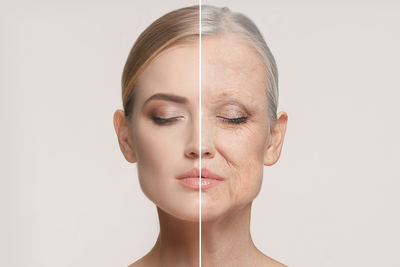
Get your life cover in place when you don’t need it
Daniel HardimanGet your life cover in place when you don’t need it.
Experience in the life assurance industry shows that most life assurance policies are taken out by people in their 30’s, 40’s and to a lesser extent in their 50’s. There is a very low uptake of life assurance by people in their 20’s who simply think they don’t need it.
We believe that it’s time to look again at this line of logic, and we ask you to consider why we believe it makes sense to get cover in place sooner rather than later.
You are fit and healthy now
Typically when you are in your 20’s, you’re in the prime of your life. You’re fit and healthy, and when it comes to life assurance, you have the choice of benefits, usually all of which can be purchased at ordinary rates without loadings or exclusions.
Being overweight is a very common reason for additional loadings being applied to life assurance premiums. When you are young, your Body Mass Index (BMI) is less likely to incur additional loadings than in the future, as some of us unfortunately spread out a little bit later in life! You also must remember that your ongoing good health is not guaranteed and that many illnesses don’t raise their ugly head until later in life. Once you are diagnosed with an illness, it may affect your access to life assurance in the future, either altogether or possibly at normal premium rates.
So taking out life assurance while you are young gives you the best chance of getting cover at rates that are not loaded because of any health issues that you might have.
Your relatives are (more likely to be) fit and healthy
In a similar theme to the above point, the health of your immediate family is an important factor in determining your premium rates. When you are younger, your parents and siblings are of course also younger and as a result, you are less likely to suffer a premium loading based on family history at this stage.
Common Family History issues that can complicate an application for cover include cancers, heart disease, a stroke, haemochromatosis, multiple sclerosis and a range of other serious conditions.
You have not yet have taken up a hazardous activity.
There are a range of activities that can impact your access to and price of life cover if you carry them out, or are planning to carry them out at the time you take out the cover. These would include the likes of;
- Working in a High Risk Area (eg: Libya, Chad, Nigeria, Colombia etc.)
- Scuba Diving
- Private Aviation
These types of activities can result in premium loadings, exclusion of cover if your death is related to these activities, or in some cases complete declinature of cover. It is quite possible that in your 20’s, you don’t carry out or plan to carry out any of these activities. So at that time you can get cover at the most competitive rates.
You have not yet undertaken advanced diagnostic screening
As we all get a bit older, we begin to recognise our own mortality and most people start to pay more attention to their health. Many people as a result go for health checks. This is a great idea as these checks can pick up any potential issues that you have, and enable you to deal with them as early as possible. However advanced screenings can also pick up incidental findings that can affect future life assurance applications.
So while undergoing the likes of ECG’s, MRI’s or Echocardiograms can be crucial to your ongoing health, you need to recognise that they may result in findings that can impact your access to life assurance. At the end of the day, you are less likely to be getting these diagnostic tests done in your 20’s.
Protect yourself against policy changes
Events happen in the life assurance industry that can impact the price of cover too. For example, the 1990’s HIV scare resulted in an approx. 15% increase in premiums overnight. So getting cover in place early can protect you against such sudden premium increases.
And of course cover is cheaper
We purposely left this point until last as the earlier points are equally important. But yes, cover is cheaper at these earlier ages, so getting the cover in place early secures these lower premiums.
“But I don’t need it now”
We hope that the above points have given you some food for thought as to why it might be a good idea to get cover in place now. Also, we’re here to find the most appropriate cover for you. There are lots of different benefits and options available in the Irish market for people at different stages of life, and we’ll find the right ones for you.
At the end of the day, that’s what we’re here for – to find you the right cover, at the right time, to suit your specific circumstances and needs.




ADD A COMMENT
You must be logged in to post a comment.